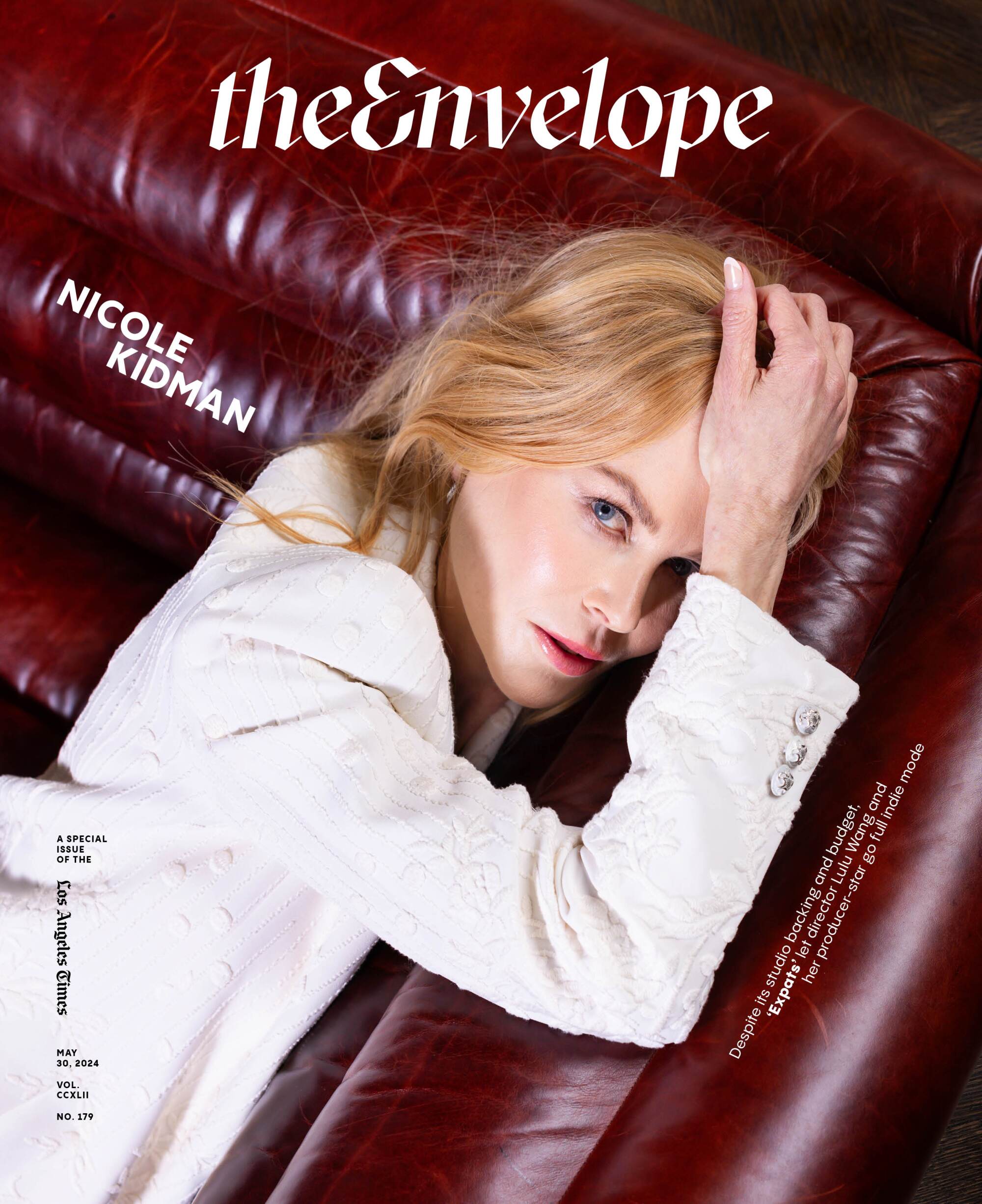Back when “Expats” showrunner and director Lulu Wang was an indie filmmaker promoting “The Farewell,” the 2019 hit that she wrote and directed, her agent reached out to her. Nicole Kidman wanted to know if Wang was interested in adapting “The Expatriates,” Janice Y.K. Lee’s novel about three American women living in Hong Kong, into a series for Prime Video.
Wang politely declined. “It wasn’t because I didn’t want to work with Nicole or that I wasn’t excited — I love the book,” Wang says, sitting on a cushioned settee in a sunlit penthouse suite at the Hollywood Roosevelt Hotel. Part of what gave her pause was scaling up so dramatically after the narrow purview of “The Farewell’s” 24-day shoot and shoestring $3-million budget. This would involve tackling a big-budget studio project that required shooting in both Hong Kong and Los Angeles.
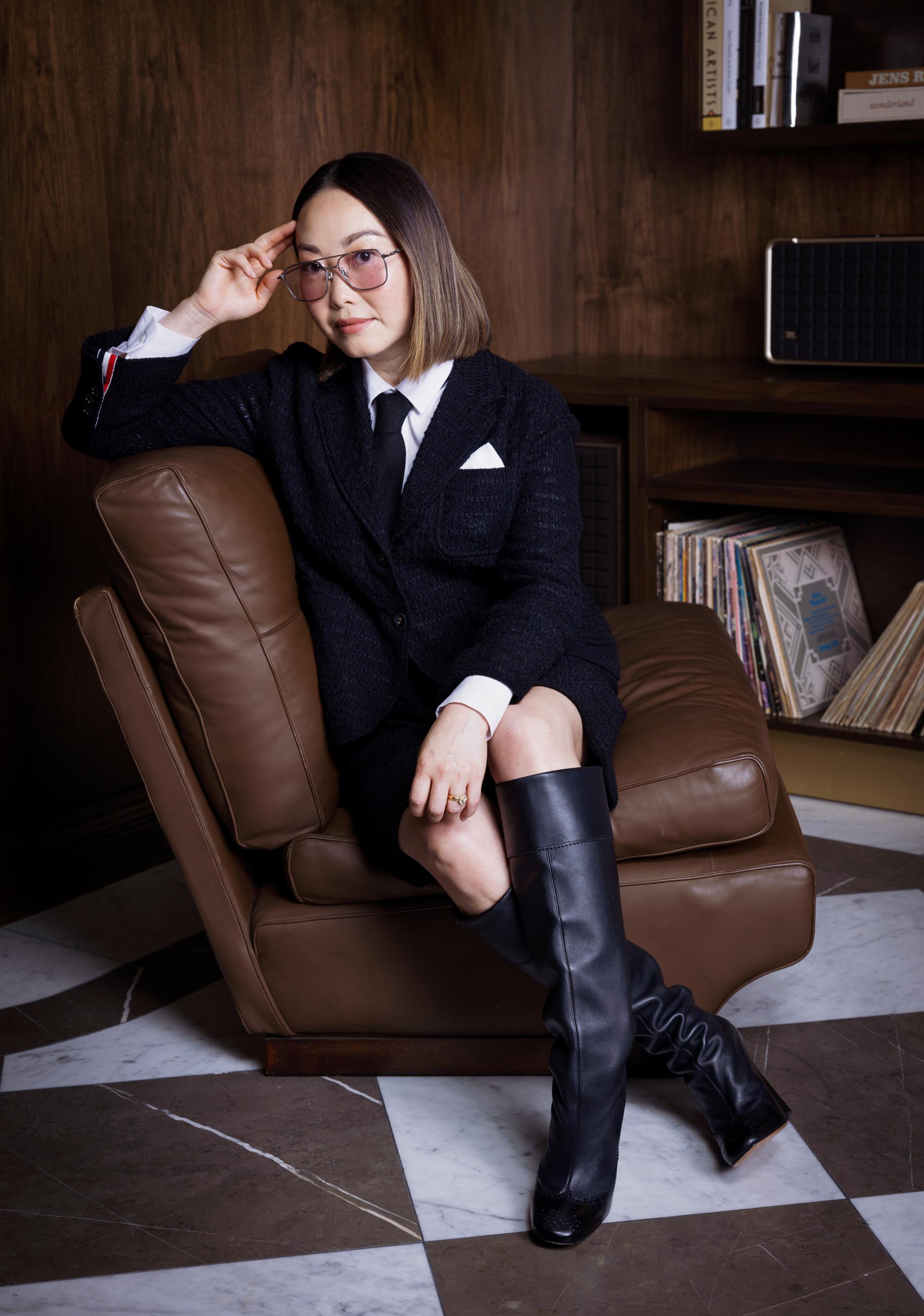
“I just felt like I was daydreaming out loud — not really pitching,” director Lulu Wang says of telling Nicole Kidman all the things she would need before taking on “Expats.”
(Christina House/Los Angeles Times)
Then came Kidman’s make-it-happen campaign. It began with dinner, just the two of them, at the rooftop restaurant at Soho House in West Hollywood. “What do you need?” Kidman asked her. Wang told Kidman that she wanted to make a limited series, not an ongoing one. She wanted to work with her “Farewell” team — production designer Yong Ok Lee, cinematographer Anna Franquesa-Solano, composer Alex Weston and producing partner Dani Melia.
She wanted to be in charge of casting, not saddled with name actors that a studio thought might attract a larger audience. She wanted the penultimate episode to shift the focus on Lee’s tale of wealthy Americans abroad, concentrating on the lives of domestic workers and letting their rich employers recede into the background. “I just felt like I was daydreaming out loud — not really pitching,” Wang says.
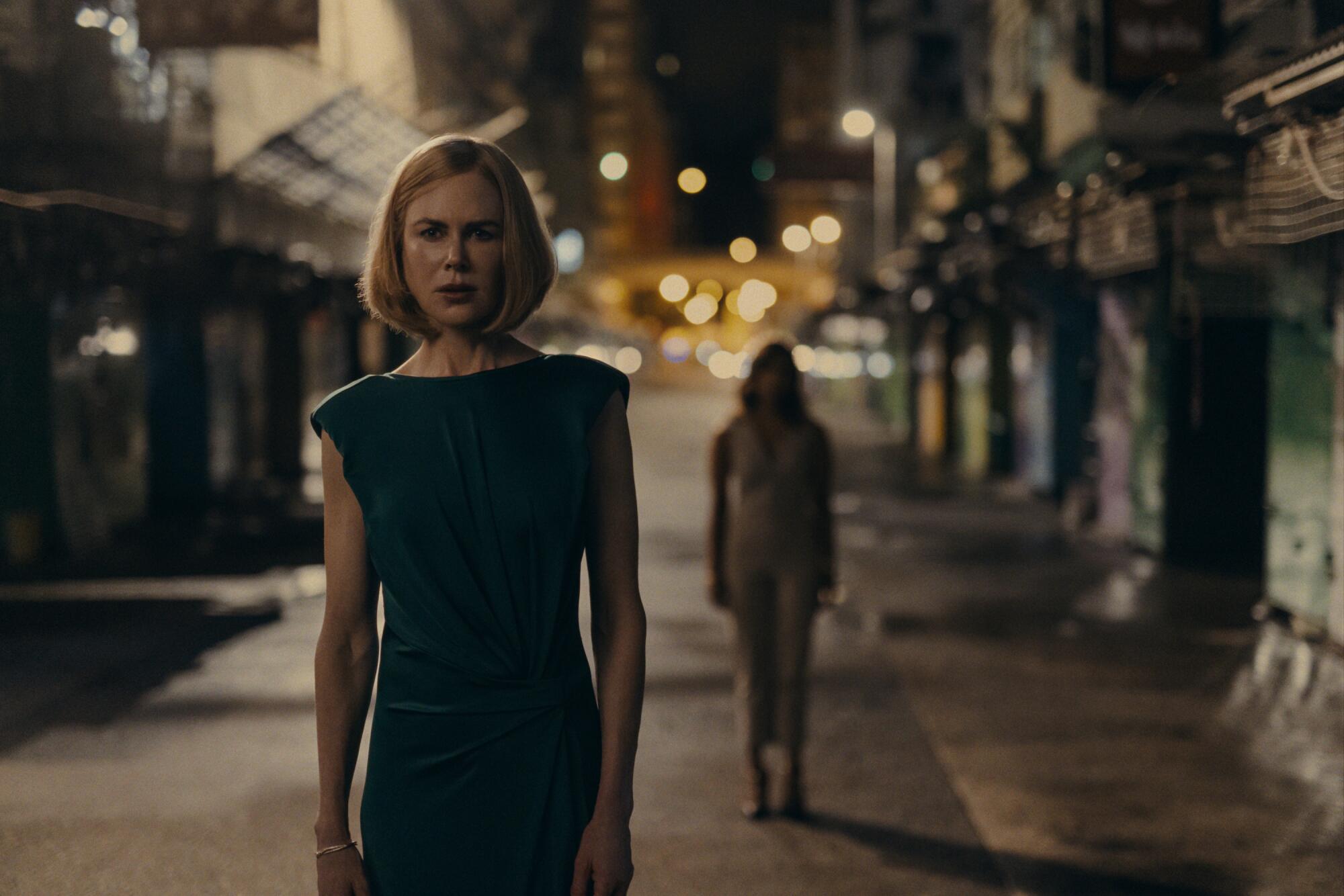
Nicole Kidman plays Margaret in “Expats,” a mother whose youngest child goes missing.
(Courtesy of Prime Video)
Except Kidman assured Wang that it was all doable. She even offered Wang some advice from her own extensive filmography pieced together from almost 38 years in showbiz. “What I tried to say is, ‘What the hell? Let’s just go for it,’” says Kidman, who, running late, has just burst in through the suite’s double doors, her cream-colored pantsuit and movie-star glow making her seem like a crowded room’s brand-new light source. Before arranging herself in a cross-legged position alongside Wang, she kicks off her stiletto heels, rubs her feet and then joins the conversation.
“The more success you have, the more daunting things become. So this has been my whole career — a just jump-off-and-do-it kind of thing. If I overthink things, I won’t do anything. I said, ‘We’ll be stronger together, and we’ll get there,’” says Kidman, who along with her production company, Blossom Films, produced “Expats” as well as stars in it.
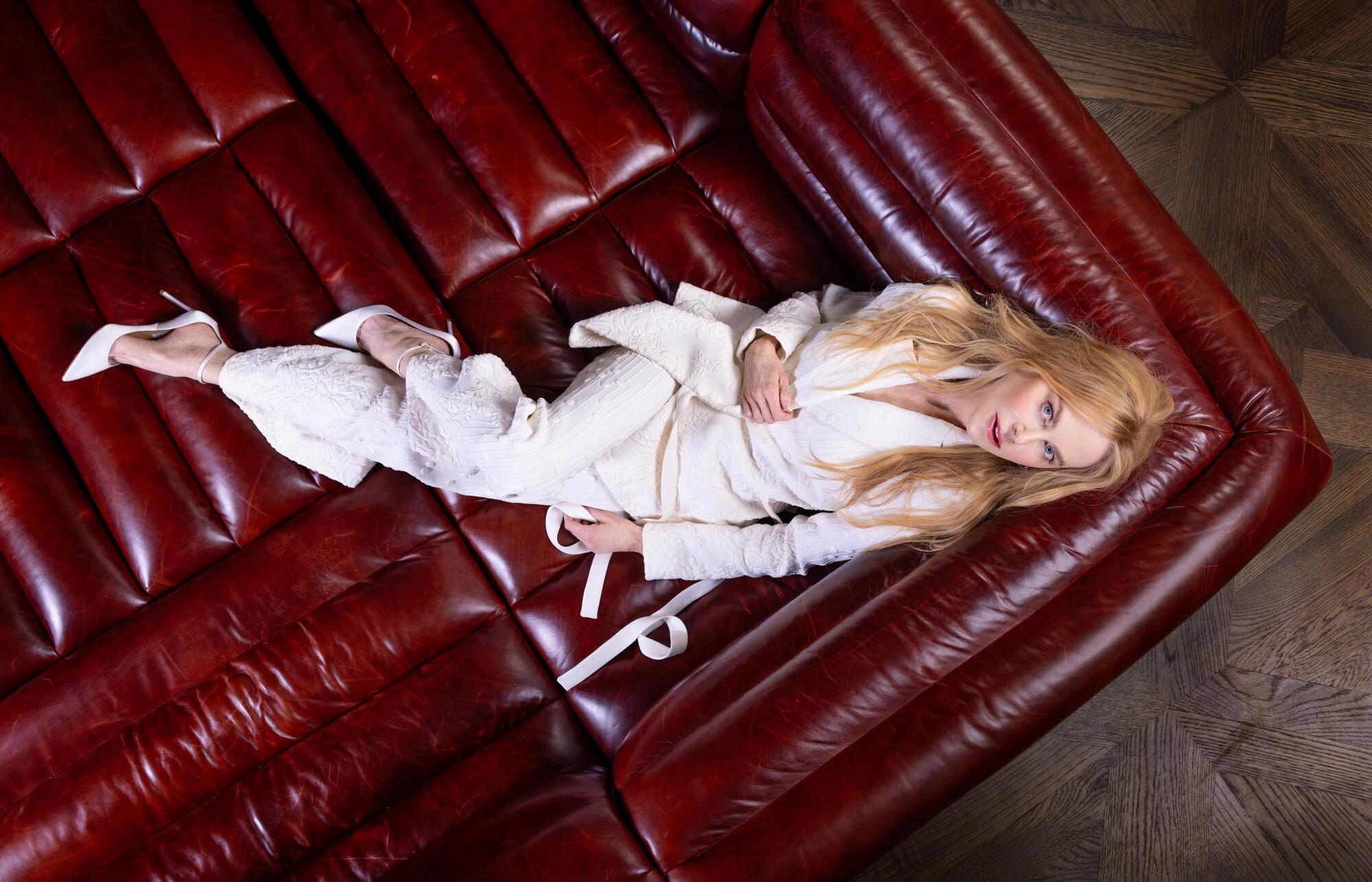
“The more success you have, the more daunting things become,” Nicole Kidman says.
(Christina House/Los Angeles Times)
Just the evening before, Kidman was overcome with emotion when presented with an AFI Life Achievement Award at a gala tribute at the Dolby Theatre in Hollywood. But it was that very body of work that affected emotions differently in August 2021, once production began on “Expats.” Kidman’s dominating presence in a cast mostly consisting of first-timers, unsung supporting players and veteran actors unfamiliar to American viewers was already a consideration. Wang’s strategy was to use the wattage.
Tiana Gowen, Bodhi del Rosario and Connor James Gilman, who play the children of Kidman’s character, Margaret, had never been on a film set or traveled abroad. “They were really intimidated by Nicole, and I didn’t want these kids to seem intimidated by their mother,” Wang says. In the end, Kidman invited them over for quality time at her Hong Kong residence. “We brought in food and just played,” Kidman says.
“Everyone was barefoot, in the pool, my dog was in the pool,” Wang says of Chauncey, her poodle mix who steals scenes as the family pet in Margaret’s glassy tower apartment. “[The pool party] was fun, and it made everybody much more comfortable.”
But young actor Ji-young Yoo, who plays Mercy, a Korean American scraping by in Hong Kong, was purposefully kept away from the Australian star until just before their first big scene at a night market bustling with 300 extras. Yoo recalls, “Lulu kind of grabbed me, and she’s like, ‘Want to meet Nicole?’ and I was like [in a tiny, plaintive voice], ‘I don’t know if I’m ready to meet Nicole. But, yeah, I’d like to meet her.’” Yoo was then led to, of all things, a small tent on the street where Kidman was inside getting ready. “I don’t know if this kind of thing is always helpful,” Yoo notes. “But for this experience, it really worked.”
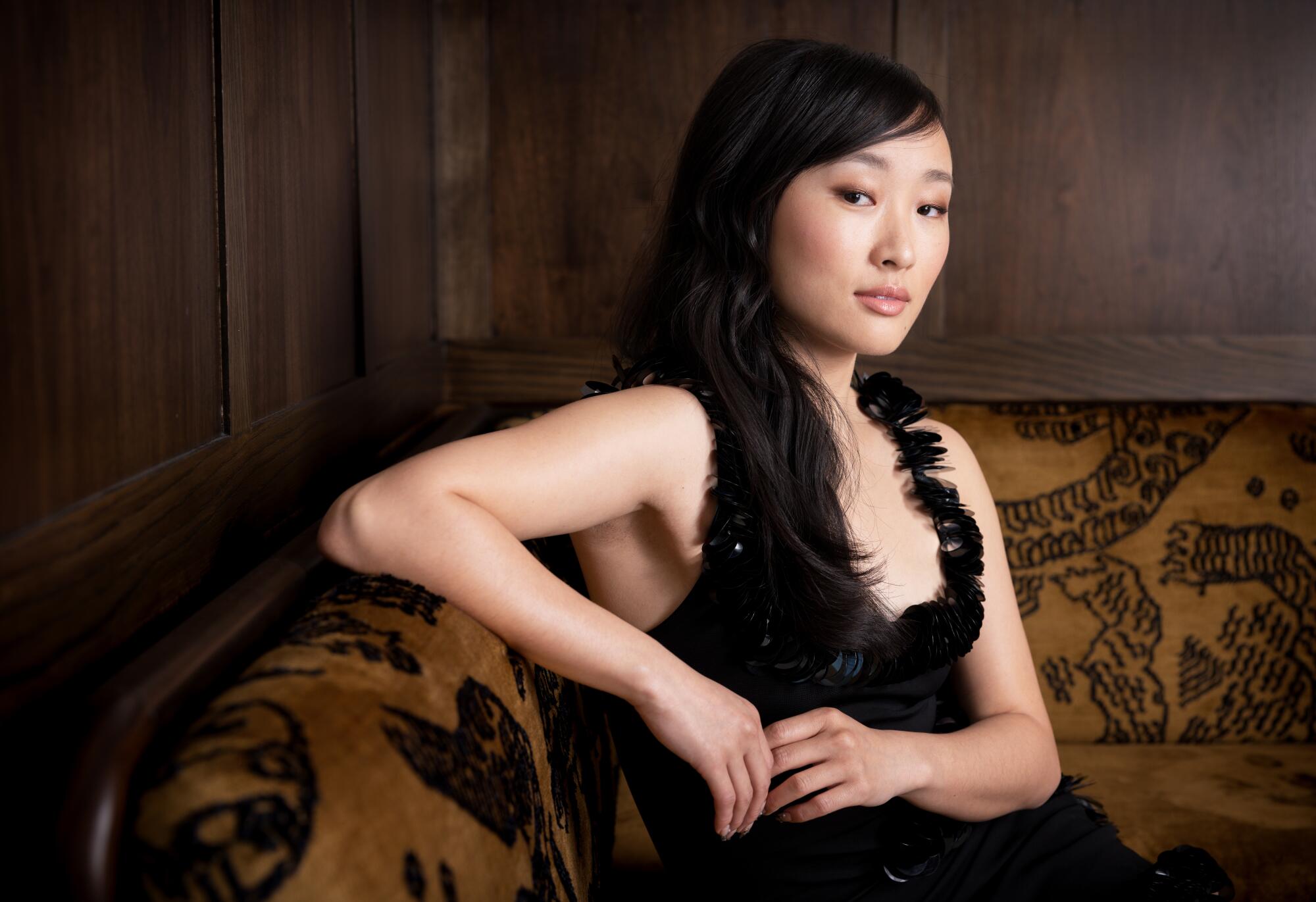
In “Expats,” Ji-young Yoo plays a young woman who gets distracted just before the child in her care goes missing.
(Christina House/Los Angeles Times)
As it happens, the sequence they were about to shoot takes place in the second episode of “Expats,” and explains a pivotal tragedy in the story that is only hinted at in the first installment: Yoo’s Mercy, in position to be hired as Margaret’s nanny, is distractedly texting in a congested outdoor market when she loses track of Gus, Margaret’s youngest son. The impenetrable layer of sadness and guilt that follows Gus’ disappearance permeates the rest of the series, much as it does Lee’s book.
In normal times, Prime execs might have been a presence on the sidelines for something as key as the Gus-goes-missing scene. Because of the ongoing pandemic and Hong Kong’s rigorous restrictions, however, they didn’t travel to the set. “We always say that we were more indie on this project than ‘The Farewell,’” Wang says. “We were there by ourselves. No one from the studio came, which was awesome, but there was so much pressure of having to deliver.”
“But everything just sort of fell into place,” Kidman adds. “If there’s a massive amount of control over you, you’re not going to be able to make what you want to make. You almost have to approach a huge project like it’s a student film.”

“She saw it from the onset as an ensemble, as an opportunity to create a platform for so many other people,” director Lulu Wang, front, says of Nicole Kidman at left, who stars with Sarayu Blue and Ji-young Yoo in “Expats.”
(Christina House/Los Angeles Times)
Because Hong Kong is an international city, at least six languages are spoken in “Expats.”
“For the first two weeks of production, what we ended up shooting was all non-English,” Wang notes. “We were sending dailies of women speaking Tagalog and Cantonese and thinking, ‘Is Amazon going to freak out?’ Like, ‘We greenlit this big Nicole Kidman project …’
“But that was great about Nicole. She saw it from the onset as an ensemble, as an opportunity to create a platform for so many other people.”
Though Wang maintained the bones of the novel’s original storyline, she and her all-female writers’ room — which included the author herself — also made alterations. This included switching it up when it came to some of the book’s white characters, and not only for the purpose of representation. “Making a shift in casting lends itself to the story,” says Wang, adding, “I don’t like when people go like, ‘Oh, how courageous’ or ‘Good on you for doing this.’ I’m not doing it for moral reasons or purely social justice. I did it because it’s more interesting.”
Brian Tee, who is Japanese American, was cast as Margaret’s husband, Clarke Woo. Wang wanted to explore class and colorism, so another of the novel’s white characters, Hilary Starr, became dark-skinned and Southeast Asian. “I didn’t have to look far,” Wang says about putting staff writer Gursimran Sandhu (“Game of Thrones”) in charge of the Hilary storyline. “I just found someone who has a wealth of stories to tell who doesn’t get to tell them. And … boom.”
It meant “Expats” was the fulfillment of a wish for veteran TV actor Sarayu Blue, who’d never gotten a character as fleshed out as Hilary, a Sikh American woman whose marriage is disintegrating at the same time her abusive father is on his deathbed. Then there is the veteran Filipina actress Ruby Ruiz, whose performance as Margaret’s sad-faced, cuddly domestic worker, Essie, is in many ways the beating heart of “Expats.” “When you have a Ruby Ruiz,” Kidman says, “it’s saying [to the studio], ‘Trust us. Let this happen. And if you don’t like it, you’ll come in and make your voices clear at the end. But give us a chance.’”
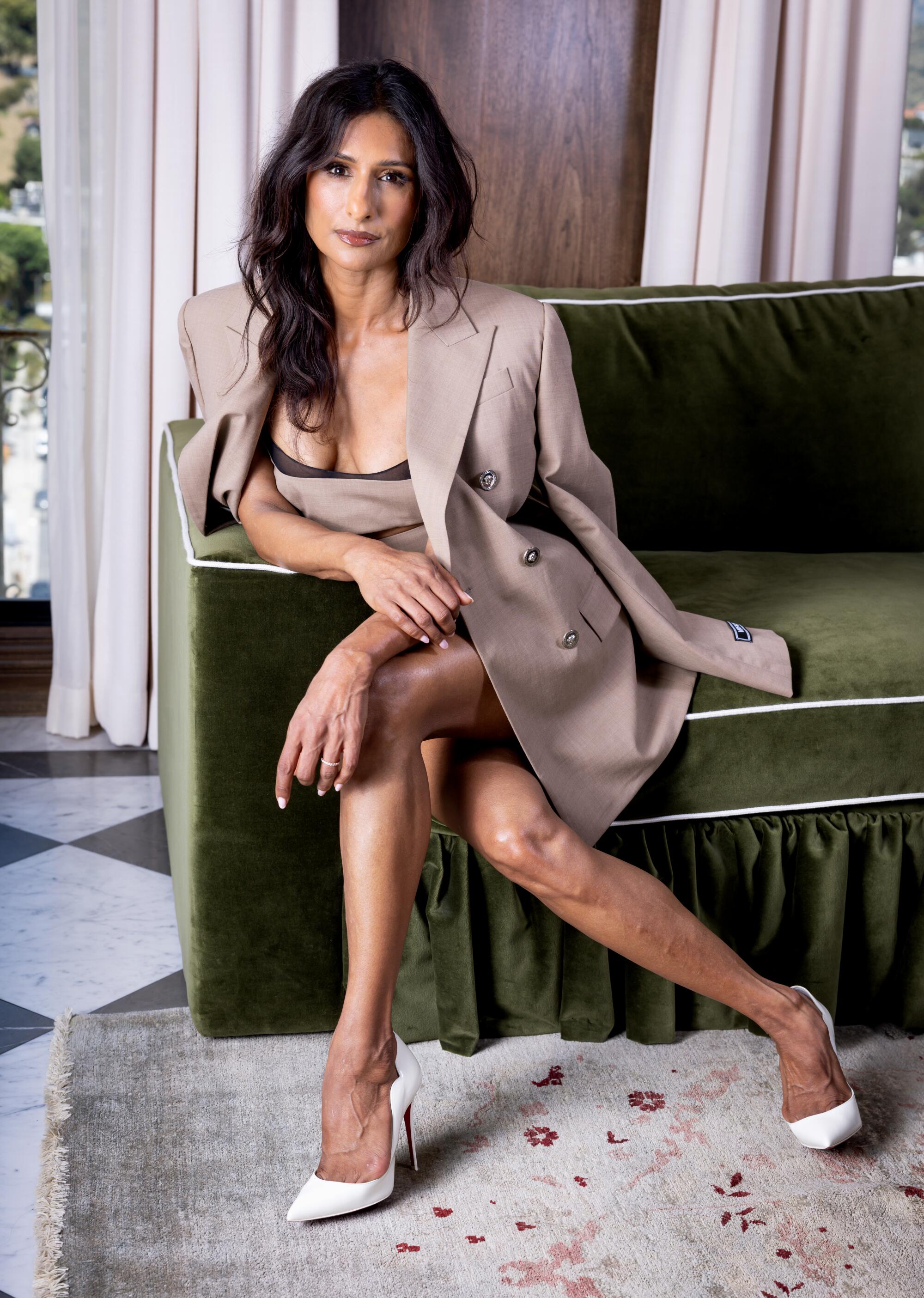
In “Expats,” Sarayu Blue plays a character who was written as a white woman in the Janice Y.K. Lee source novel “The Expatriates,” about three American women living in Hong Kong.
(Christina House/Los Angeles Times)
Though most of “Expats” was shot in Hong Kong, the opulent apartment interiors, where so much of the emotional drama unfolds, were shot on a soundstage roughly 7,000 miles away in Santa Clarita, Calif. “You really felt like you walked through a portal and you were back in Hong Kong,” Yoo says of production designer Lee’s re-creation, which included an enormous panoramic backdrop of one of Hong Kong’s most upscale neighborhoods, Victoria Peak. “It circled the entire apartment and was hooked up with LED lights so they didn’t have to use a green screen. For night-time scenes, it was lit up. I don’t think the audience could tell. But for an actor, it’s so helpful when [a set] feels more tangible.”
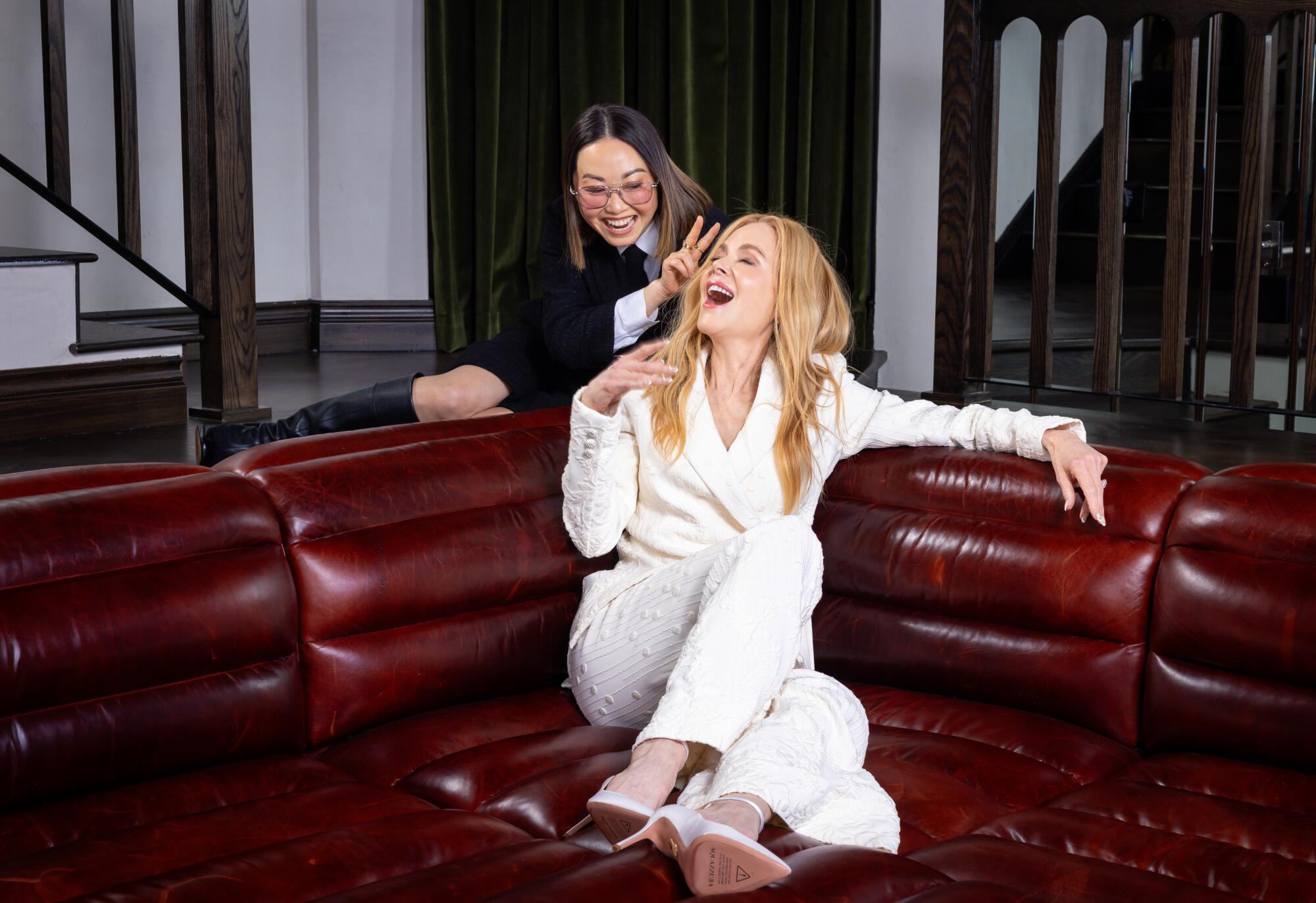
“We were there by ourselves. No one from the studio came, which was awesome, but there was so much pressure of having to deliver,” Nicole Kidman says of the “Expats” shoot in Honk Kong.
(Christina House/Los Angeles Times)
Wang says one of the unexpected bonuses of “Expats” was realizing that she and her team were different people than when they began. “I think the idea of doing a big studio project [before] would have been really intimidating,” she says. “And now it’s not. Now it’s like, ‘OK, we see how this works.’ Regardless of the size, the scale, the number of people, we can still do what we do and bring our voice to it.”
Next up, she hopes, is an unnamed sci-fi feature. In the past, it would be something she’d have had concerns about taking on. “There’s so much world-building on a sci-fi project,” she says. “But we actually did so much world-building on ‘Expats.’ Whether we were shooting on a stage or on location or had to create a typhoon through visual effects, we had to make it all seamless. We made Hong Kong itself into a character. So now we’re excited to world build in a new way.”
